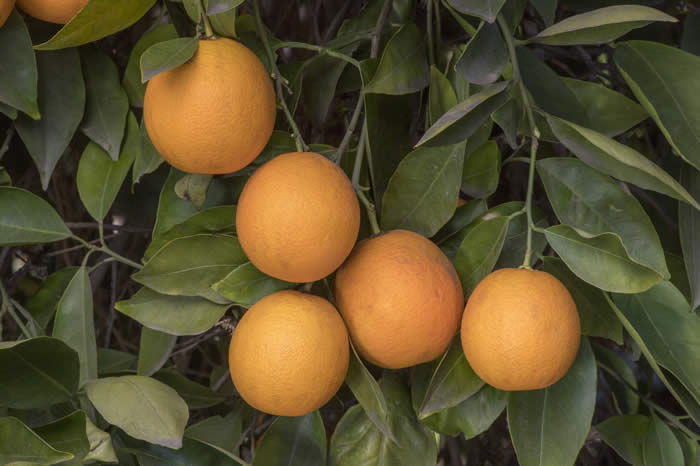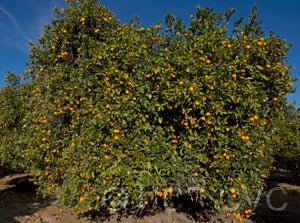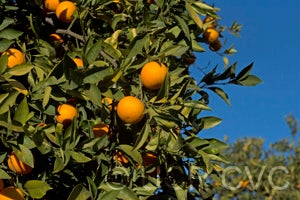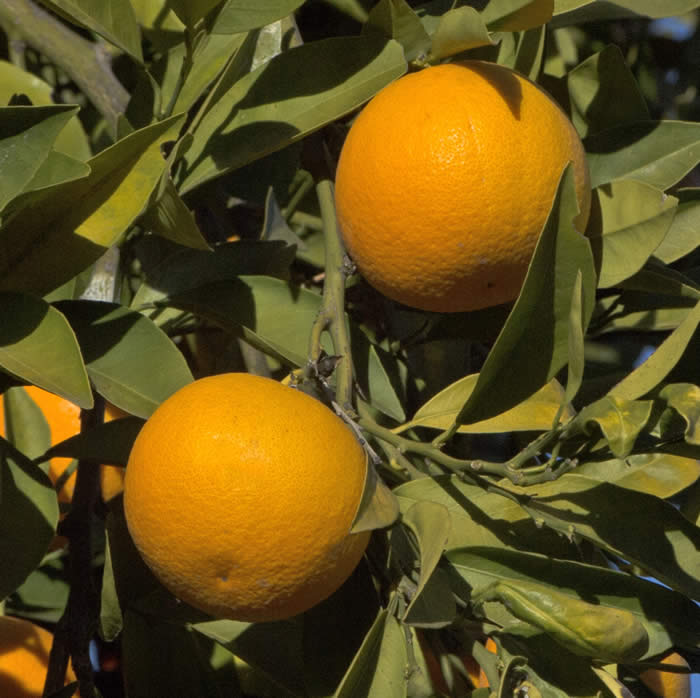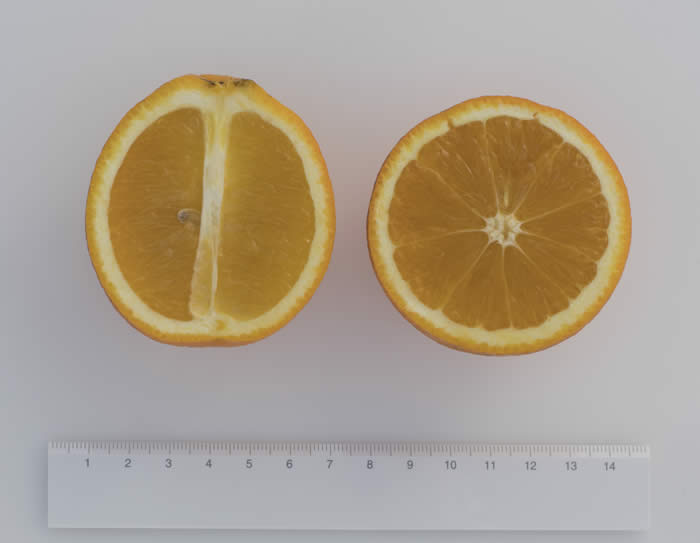Citrus sinensis (L.) Osbeck RUTACEAE
CRC 3868
PI 539632
VI 221
Source
Received as budwood from USDCS, Indio, CA, via CCPP, 1963.
Parentage/origins
This Spanish variety is believed to have originated as a limb sport on a comuna tree in the garden of a convent. It was called to the attention of Don Salustiano Pallas of nearby Enova, Valencia, and propagated and introduced by him about 1950 (Gonzalez-Sicilia, 1963).
Rootstocks of accession
Carrizo citrange, C-35 citrange
Season of ripeness at Riverside
December to February
Notes and observations
Seedling budline developed at USDCS.
2/8/1988, EMN: A typical mid-season seedy sweet orange; tends toward small fruit sizes; has relatively few seeds.
Description from The Citrus Industry Vol. 1 (1967)
"Fruit medium-large, subglobose to spherical; basal cavity shallow with faint radial furrows; apex depressed; areolar ring small but well-marked in many cases; virtually seedless. Unusually well-colored at maturity. Rind medium-thick and surface moderately pebbled. Flesh melting, juicy; flavor rich and sweet. Fruit said to hold especially well on tree without much loss of quality. Early in maturity (earliest of the Spanish varieties).
Tree vigorous, somewhat upright, medium-large, and productive. Because of its early maturity, seedlessness, and quality, it is regarded as highly promising and has been planted to a considerable extent in Spain in recent years and somewhat in Algeria and Morocco.
According to Chapot and Huet (1963), who have reported on the characteristics of this variety in North Africa, both tree and fruit are indistinguishable from Cadenera, except that the latter is somewhat flatter in form. Salustiana is much earlier in maturity, however."
Availability
Commercially available in California through the Citrus Clonal Protection Program. Click here to order budwood.
USDA Germplasm Resources Information Network page for Salustiana sweet orange
